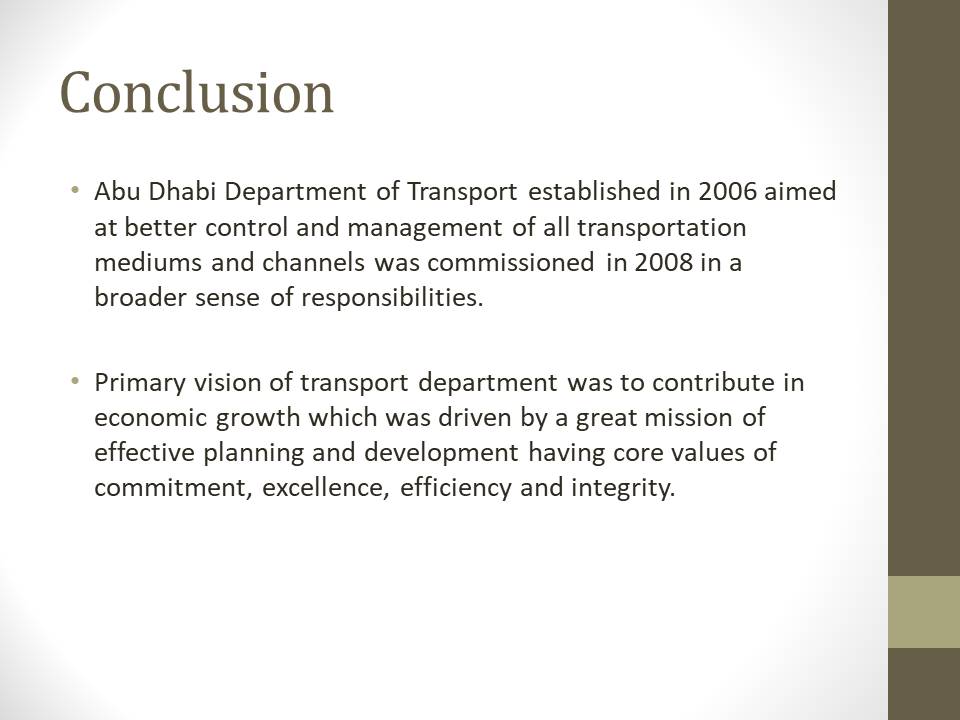Introduction
Established in 2006 under Law no. 4, the Department of Transport is aimed at fulfilling all requirements of commuting and governed by one single organizational unit.
Department of Transport is aiming at providing high standard services and building its infrastructure while keeping an international environmental standard in view when it aims at acquiring ISO standard certifications.
General Civil Aviation Authority (GCAA) and the Department of Civil Aviation, the Department of Municipal Affairs (DMA) and Department of Seaports (SPA) were put together and responsibilities were delegated.
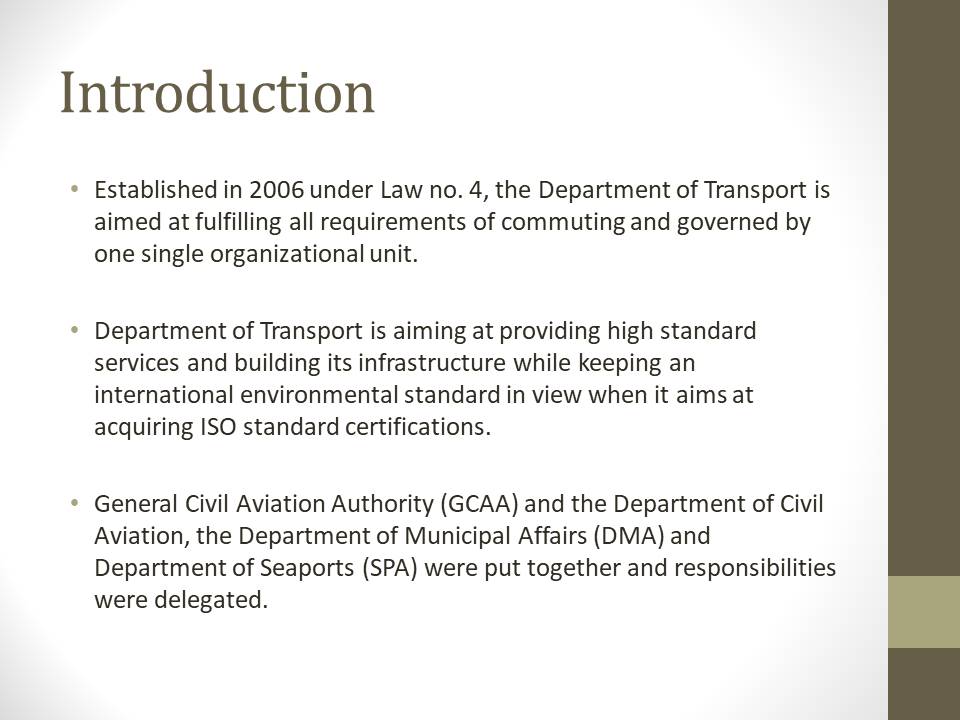
Vision – Mission – Value
- Vision:
- To deliver an effective transport system that contributes to the economic growth, quality of life and environmental sustainability of the Emirate of Abu Dhabi.
- Mission:
- Regulate, plan and develop an efficient and well-integrated transport system that serves the public interest by enhancing mobility and delivering safe, secure and environmentally responsible Aviation, Maritime, Public Transport and Highways sectors.
- Values:
- Department of Transport is working according to six core values which reflect the way we manage our daily business:
- Excellence.
- Commitment.
- Integrity.
- Cooperation.
- Department of Transport is working according to six core values which reflect the way we manage our daily business:
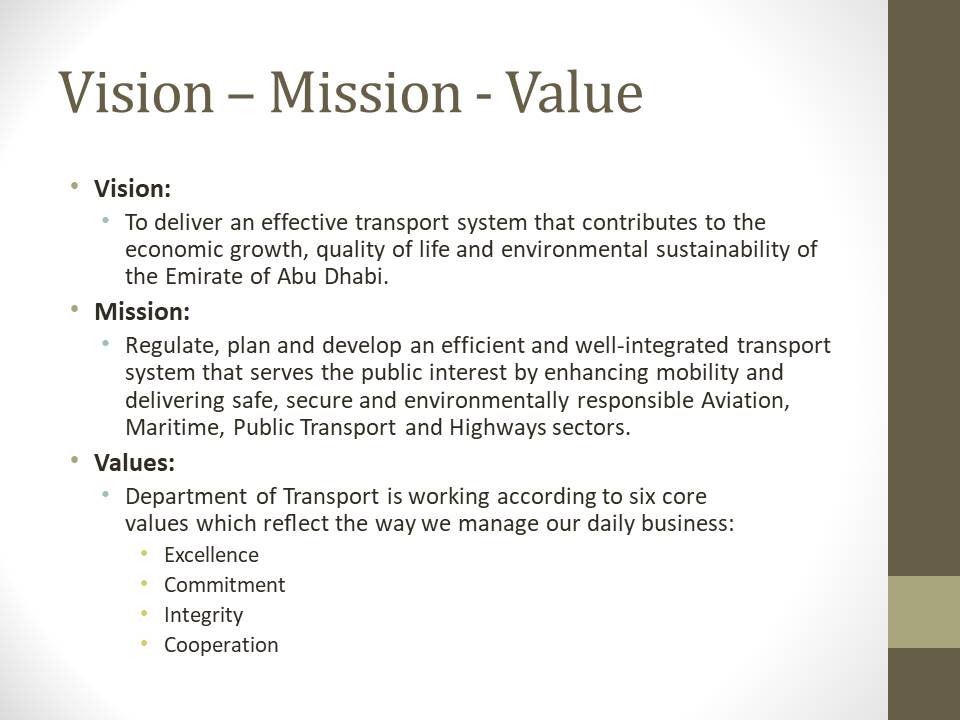
Strategic Objectives
- Human Resources Services.
- Coordination of plans and policies, regulations and strategies.
- Monitoring and oversight of the economic sector.
- Economic Development of the sector.
- Waterways management.
- Governance and Management Framework.
- Public Transport capacity.
- Transportation means change.
- Integration of multiple forms.
- Quality.
- Security and safety.
- Tools and information for policy design.
- Development of the network and increase its accessibility.
- To maintain and develop the roads.
- Efficiency of the network.
- Safety.
- Environmental Protection.
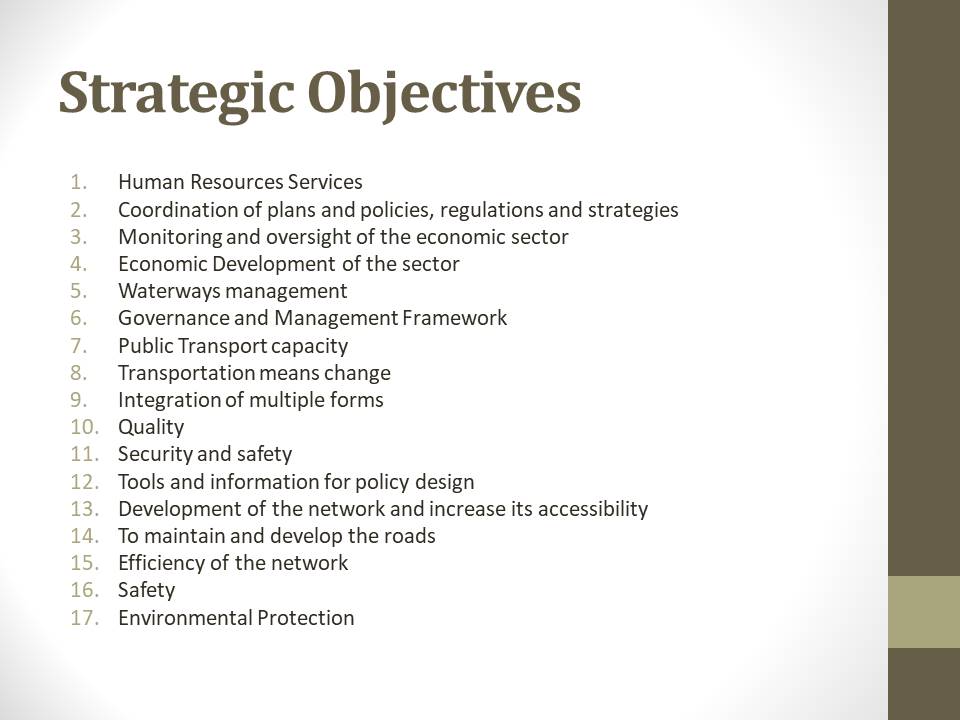
Transport System In Abu Dhabi
The transport system is divided into three areas, land, sea and air which call for relative roles and responsibilities of respective stakeholders to achieve their objectives.
- Roles of the MaritimeSector:
- To develop, organize and supervise maritime rules under federal framework.
- Roles of the AviationSector:
- The role is to develop and supervise aviation economic regulations and to coordinate with GCAA (GCAA-Web, 2011) regulations and to evaluate performance and promote the development of aviation sector.
- Roles of the Maritime Sector:
- To develop, coordinate and oversee maritime regulations along with ADPC’s strategic planning efforts while evaluating performance to promote development of maritime sector.
- Roles of the Land Transport Sector:
- The role is to develop, provide and oversee a hired vehicle and to monitor, evaluate, mange traffic and oversee the implementations of highways infrastructure development plans.
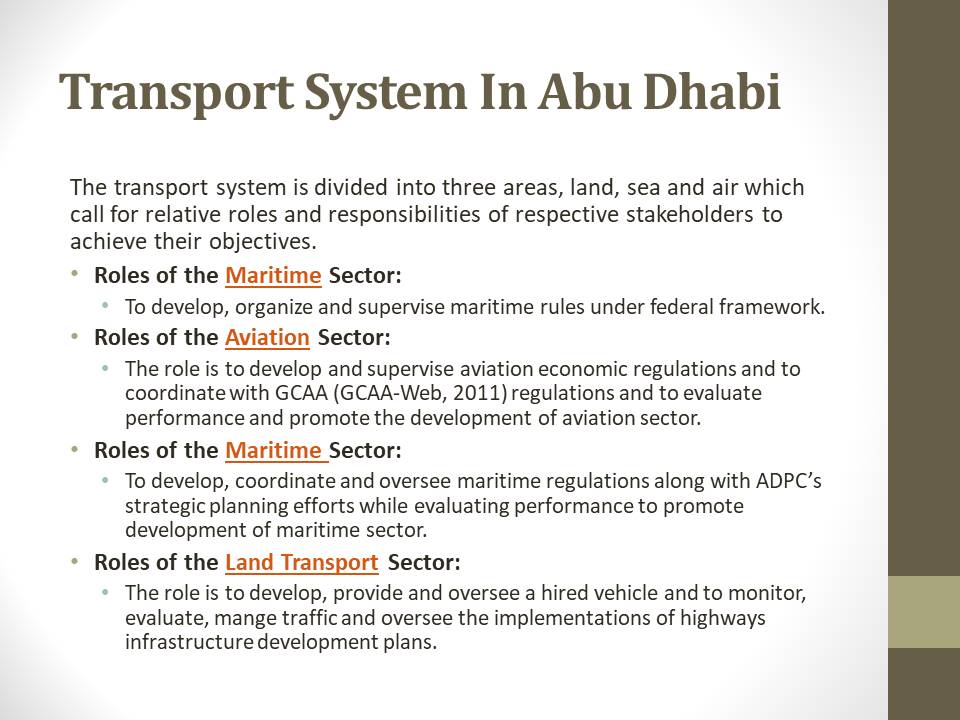
Enablers Criterions
EFQM criterions as the following:
- Strategy.
- People.
- Processes, products and services.
Strategy
- Strategy is based on understanding the needs and expectations of both stakeholders and the external environment.
- Strategy is based on understanding internal performance and capabilities.
- Strategy and supporting policies are developed, reviewed and updated.
- Strategy and supporting policies are communicated, implemented and monitored.
People
- People Plans Support the Organization’s Strategy.
- Develop people’s knowledge and capabilities.
- People are aligned, involved and empowered.
- People communicate effectively throughout the organization.
- People are rewarded, recognized and cared for.
- People communicate effectively throughout the organization.
Processes, products and services
- Processes are designed and managed to optimize stakeholder value.
- Products and Services are developed to create optimum value for customers.
- Products and Services are effectively promoted and marketed.
- Products and Services are produced, delivered and managed.
- Customer relationships are managed and enhanced.
- People communicate effectively throughout the organization.
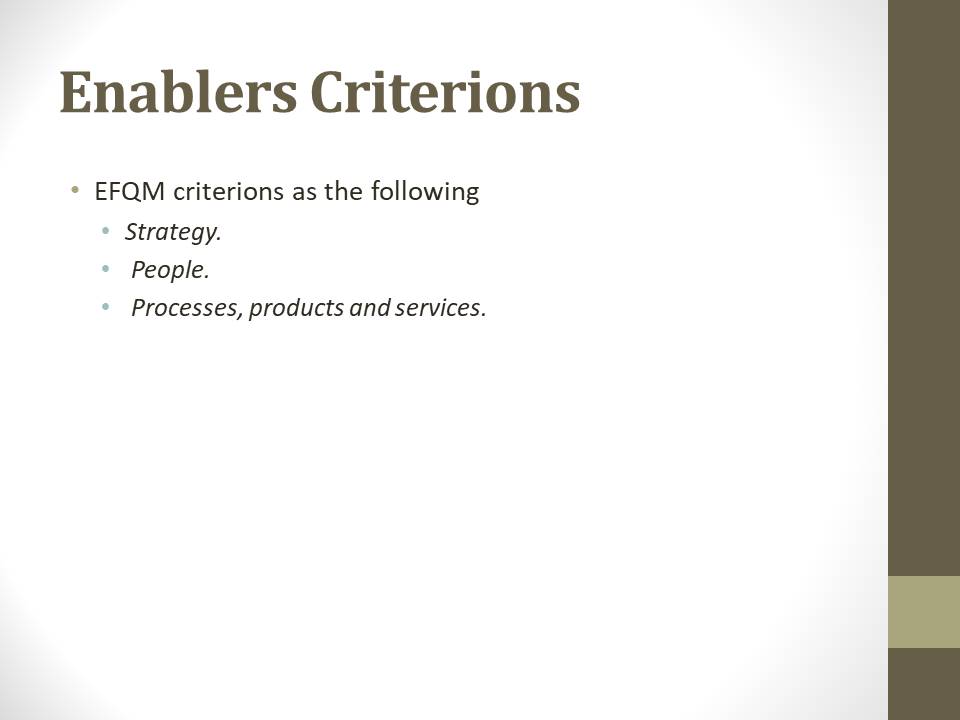
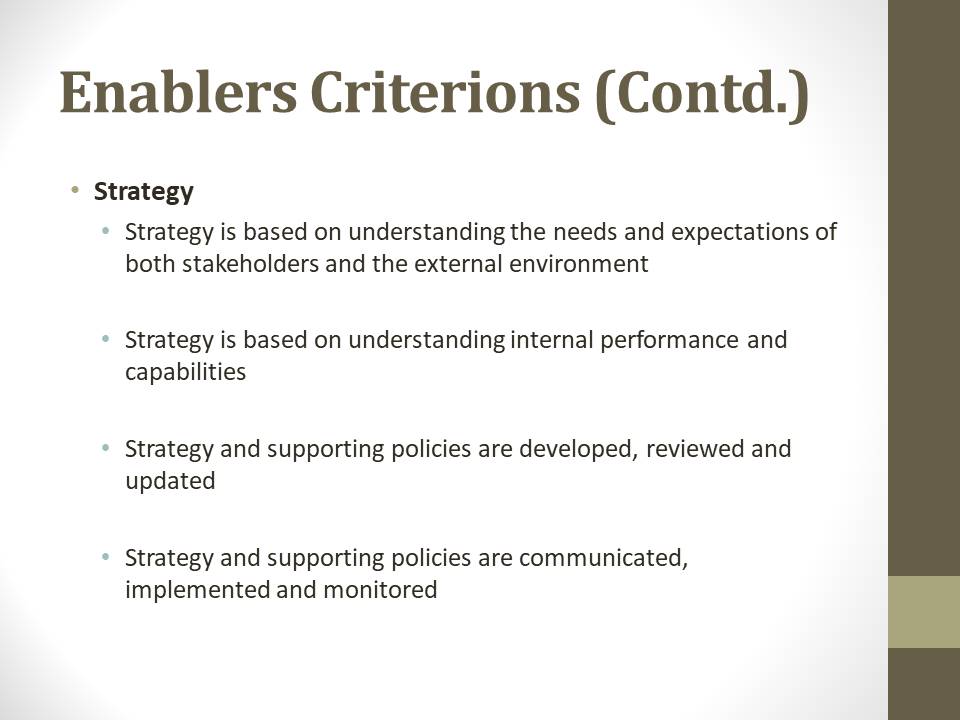
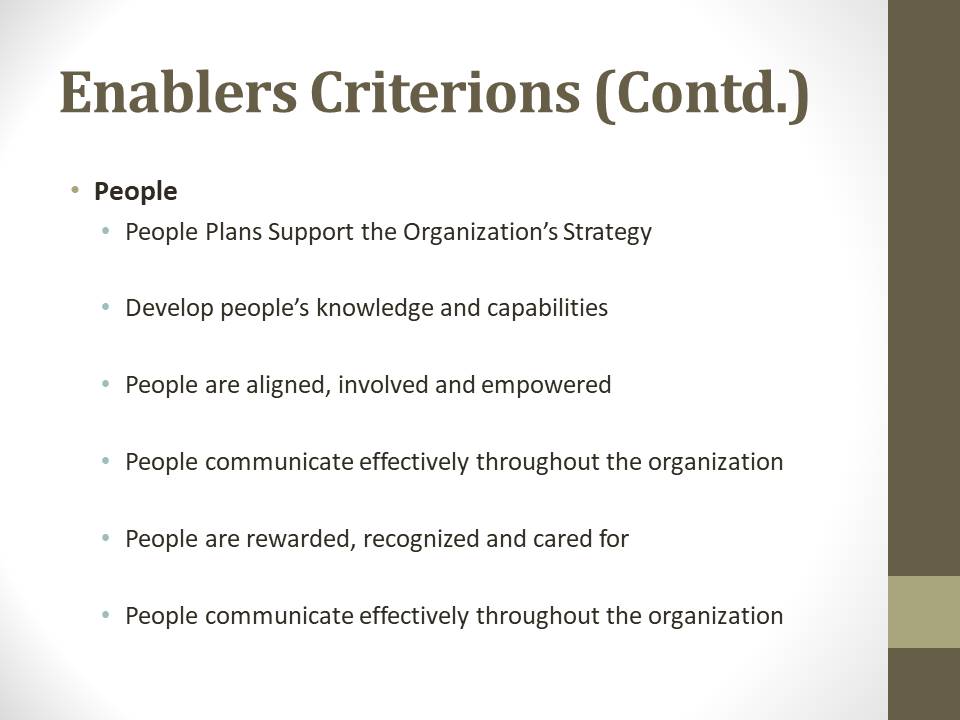
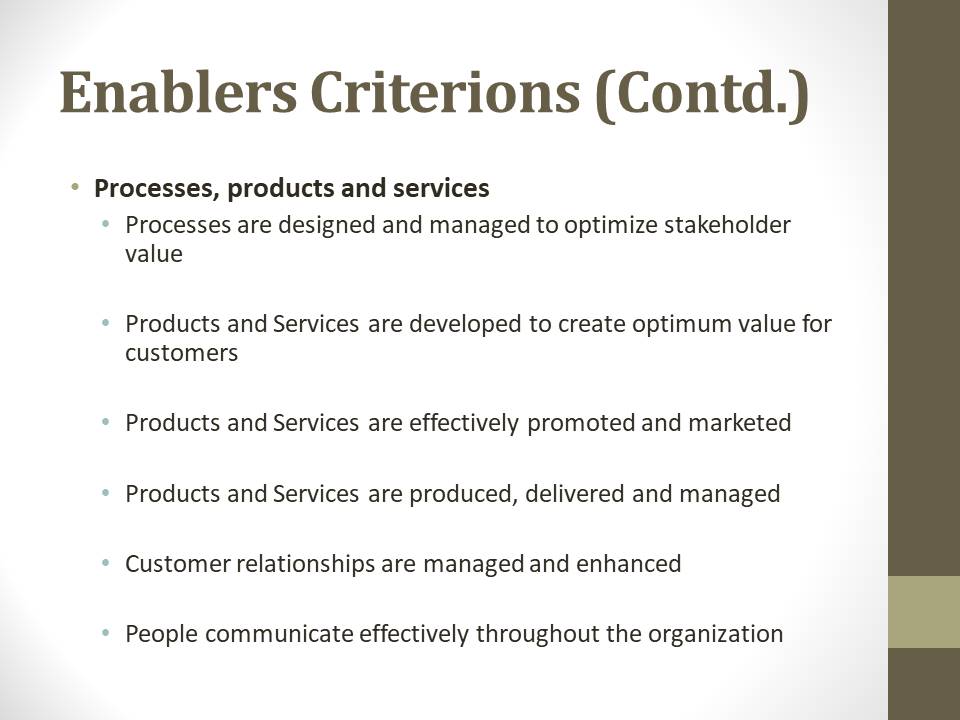
Conclusion
Abu Dhabi Department of Transport established in 2006 aimed at better control and management of all transportation mediums and channels was commissioned in 2008 in a broader sense of responsibilities.
Primary vision of transport department was to contribute in economic growth which was driven by a great mission of effective planning and development having core values of commitment, excellence, efficiency and integrity.
